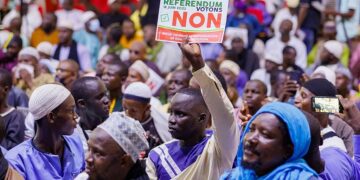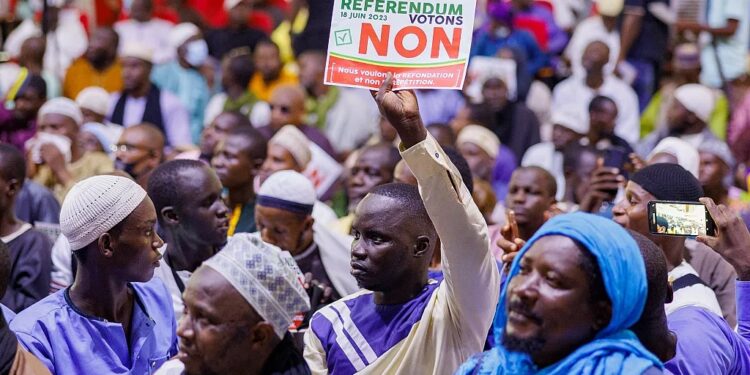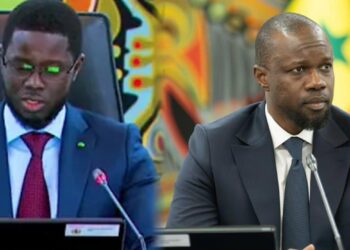By John Ikani
Ahead of Mali’s upcoming constitutional referendum on Sunday, the streets of the capital city, Bamako, witnessed a remarkable display of civic engagement as throngs of Malians turned out for rallies on Friday.
The military-led government, headed by Assimi Goita, has thrown its weight behind the adoption of a new secular constitution, advocating for a “Yes” vote.
However, facing off against them are opponents of the bill who firmly reject the idea of a secular state.
Speaking on behalf of the Movement in support of Limama against secularism, Cheick Salla Haïdara declared, “In our country, even those who identify with traditional religions have their rights.
Our sole request was to ensure that secularism would not encroach upon religious education, allowing individuals to learn and practice their respective faiths freely.
Regrettably, our concerns fell on deaf ears.” Haïdara passionately called upon all Malians to unite in voting “No” during the constitutional referendum on June 18, 2022.
Djeneb Sidibé, a female voter who stands firm in her support for the “No” camp, highlighted the fact that an Islamic Mali does not equate to hostility towards Christians or any other religious groups.
She emphasized the long-standing peaceful coexistence and shared traditions, stating, “For years, we have peacefully lived side by side with Christians, even joyfully sharing meals during their festivals. If we truly harbored animosity, would we partake in such acts of goodwill?”
The proposed constitutional draft is part of a comprehensive series of reforms spearheaded by the military junta, providing justification for the delay in the transition to civilian rule until 2024.
Aïchata Maïga, an advocate for the “Yes” vote, expressed her approval for an article within the constitution that explicitly defines marriage as a union solely between a man and a woman.
Maïga commented, “The aspect of this constitution that resonated with me the most is the inclusion of an article affirming marriage as a sacred bond exclusively between a man and a woman. It upholds our cherished values and traditions, ensuring that same-sex marriages are not recognized.”
The newly proposed constitution aims to strengthen the role of the president while also according significant importance to the armed forces, national sovereignty, and the fight against corruption. Additionally, it grants recognition and legitimacy to traditional authorities and languages, alongside the establishment of a Senate.




































